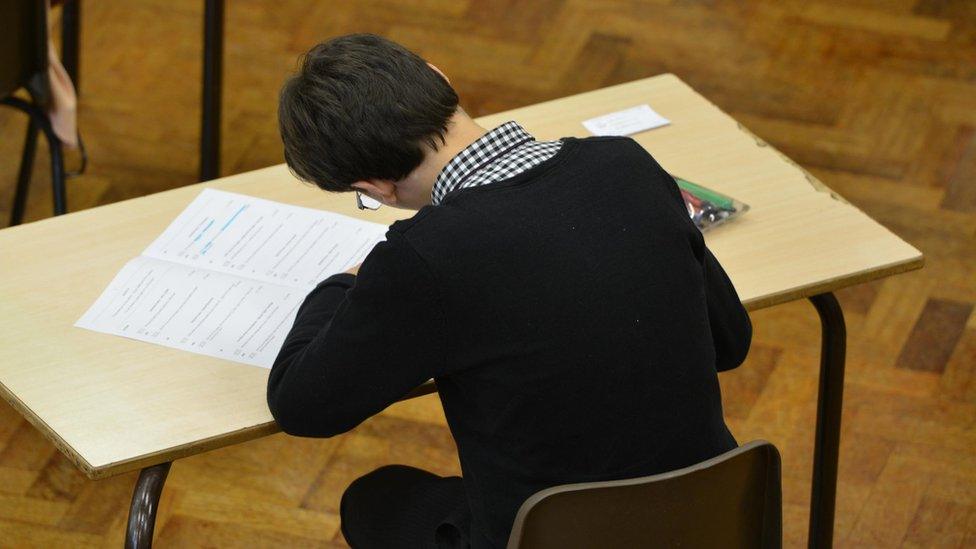QUB study explores the effect of daydreaming in young
- Published

Researchers found that children spent about 25% of their time in the classroom daydreaming
Children spent a quarter of their time in class daydreaming, according to new research from Queen's University Belfast (QUB).
The study conducted by the School of Psychology involved 97 children aged six to 11 years old.
Results suggest that while daydreaming is inevitable, it can affect the ability to learn.
The findings have just been published in the Journal of Experimental Child Psychology.
Research into the links between daydreaming or "mind wandering" and learning in children was carried out by Prof Teresa McCormack, Dr Agnieszka Graham and Jessica Cherry from QUB.
Dr Graham said that knowing more about daydreaming in children could help with finding ways to reduce it in school.
The QUB study is the first of its kind to look at how daydreaming affects how well children learn and remember what they have been taught.
Daydreaming or mind-wandering is common in both children and adults, but most of the research carried out so far has focused on how it affects adults or teenagers.
In previous studies involving adults, higher rates of daydreaming "have been implicated in poorer performance on a range of learning activities, including reading," according to the QUB paper.
In QUB's research into daydreaming in younger children, 97 children aged between six and 11 listened online to a pre-recorded story about a fictional pharaoh in Ancient Egypt.

The QUB study is the first of its kind to look at how daydreaming affects how well children learn
Roughly every two minutes, they were asked a question to check if they were paying attention or if their mind had wandered to something else.
In the exercise, the children reported "mind-wandering" around a quarter of the time (25%).
After the story was over, the children were then asked 10 questions to see what they could remember about it, whether they had liked the story and how interested they were in it.
Whether they were interested or not affected how often they daydreamed and those who daydreamed more frequently remembered less about the story.
That suggests that if children are highly interested in a lesson in school, they will daydream less.
The QUB team said that the results indicated that daydreaming "can be reliably measured in children and is of educational significance".
"Mind wandering is detrimental during educationally significant activities," the QUB paper said.
"In an educational context, if students fail to attend to instruction because of (daydreaming) this may impede their chances of acquiring crucial skills or knowledge.
"Children's interest in the topic influenced the level of mind wandering, which in turn influenced participants' ability to recall facts from the story."
In a separate statement, Dr Agnieszka Graham suggested that finding out more about when and why children daydreamed in school could help teachers find ways to reduce it in class.
"In school, often children can get in trouble for mind wandering, it is sometimes viewed as a sign of disrespect or misbehaviour, if they are not paying attention," she said.
"However, our research has found that children, like adults, are unable to fully concentrate all the time, it's likely that their minds will wander for a substantial proportion of a typical school day.
"Our findings indicate that further exploring the causes and consequences of mind wandering in these early years at school could provide a solid foundation for developing interventions to help children detect when their minds strayed from the task at hand and refocus their attention."
Related topics
- Published20 May 2021

- Published2 February 2021

- Published17 May 2021
